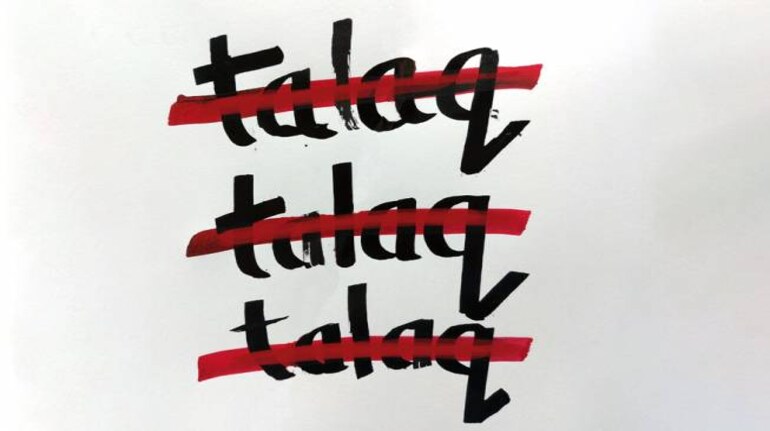



The Supreme Court on Tuesday invalidated the Muslim practice of triple talaq practice, directing the Centre to frame a law on it in the next six months.
A five-judge constitution bench headed by the Chief Justice of India JS Khehar had in May had reserved its verdict following a six-day hearing.
What is the verdict?
The five-member bench of the Supreme Court set aside the practice of 'talaq-e-biddat' by a majority of 3:2.
This means three judges voted in favour of striking down triple talaq and declaring it "unconstitutional".
What did the judges say?
The apex court in its verdict said that, "Given the fact that triple talaq is instant and irrevocable, it is obvious that any attempt at reconciliation between the husband and wife by two arbiters from their families, which is essential to save the marital tie, cannot ever take place."
The bench said that triple talaq "is not integral to religious practice and violates constitutional morality".
Chief Justice JS Khehar and Justice Abdul Nazeer who voted to uphold the practice, said that while triple talaq "may be sinful", the court cannot interfere in personal laws which have the fundamental rights status according to the constitution.
The apex court also ordered the Parliament to bring a law to end the practice within six months and asked political parties to keep their differences aside and help the Centre.
Prime Minister Narendra Modi tweeted, "Judgment of the Hon'ble SC on Triple Talaq is historic. It grants equality to Muslim women and is a powerful measure for women empowerment."
What is triple talaq?
According to Muslim practices, there are three forms of 'talaq' (divorce) - Ahsan, Hasan and Talaq-e-Biddat (instant talaq). While Ahsan and Hasan are revocable, divorcing through the Biddat form is irrevocable.
A Muslim man can divorce his wife by pronouncing the word "talaq" three times orally, in a written format or delivered electronically by a phone call, SMS or via social media.
The divorce is considered legal and the husband need not cite any reason for the divorce while pronouncing it.
Usually, a waiting period is recommended before pronouncement of each 'talaq' every time. Reconciliation is attempted during this period.
However, it has now become very common for all three 'talaq' pronouncements to happen in one go. A Muslim woman, however, cannot divorce her husband using by means of triple talaq. While the practice is not recommended, it is not prohibited either.
What was the case about?
In October 2015, the Supreme Court of India, in a rare move, questioned whether the Muslim personal law practices regarding marriage and divorce objectify women.
The court then took up suo moto cognisance public interest litigation (PIL) petition titled ‘In Re: Muslim Women’s Quest for Equality’ to examine whether the practices of arbitrary divorce, polygamy and Nikah violate women’s dignity.
In May, the court announced that it would only examine whether triple talaq was part of an "enforceable" fundamental right to practice religion by the Muslims and not touch upon other areas such as polygamy.
The top court had heard from stake holding parties such as the All India Muslim Personal Law Board (AIMPLB) and the Centre during the hearings.
Discover the latest Business News, Sensex, and Nifty updates. Obtain Personal Finance insights, tax queries, and expert opinions on Moneycontrol or download the Moneycontrol App to stay updated!
Find the best of Al News in one place, specially curated for you every weekend.
Stay on top of the latest tech trends and biggest startup news.